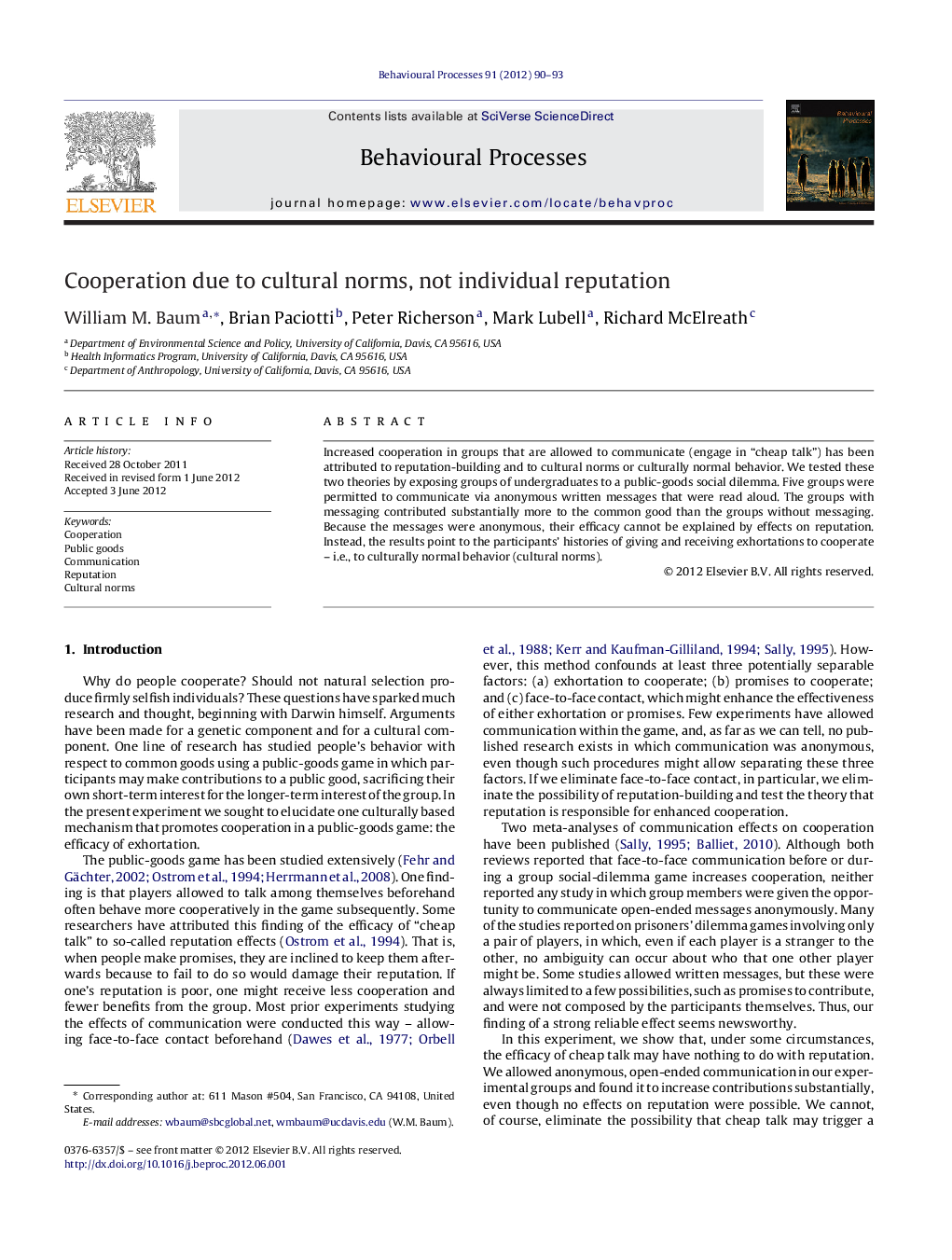| Article ID | Journal | Published Year | Pages | File Type |
|---|---|---|---|---|
| 2426934 | Behavioural Processes | 2012 | 4 Pages |
Increased cooperation in groups that are allowed to communicate (engage in “cheap talk”) has been attributed to reputation-building and to cultural norms or culturally normal behavior. We tested these two theories by exposing groups of undergraduates to a public-goods social dilemma. Five groups were permitted to communicate via anonymous written messages that were read aloud. The groups with messaging contributed substantially more to the common good than the groups without messaging. Because the messages were anonymous, their efficacy cannot be explained by effects on reputation. Instead, the results point to the participants’ histories of giving and receiving exhortations to cooperate – i.e., to culturally normal behavior (cultural norms).
► Increased cooperation after cheap talk may be due to reputation or cultural norms. ► The experiment reported tested these theories. ► In a public-goods game, some groups could convey messages to the group anonymously. ► Messages increased cooperation, and sub-maximal contribution induced exhortations. ► The results support the theory that the effect of messages is due to cultural norms.
